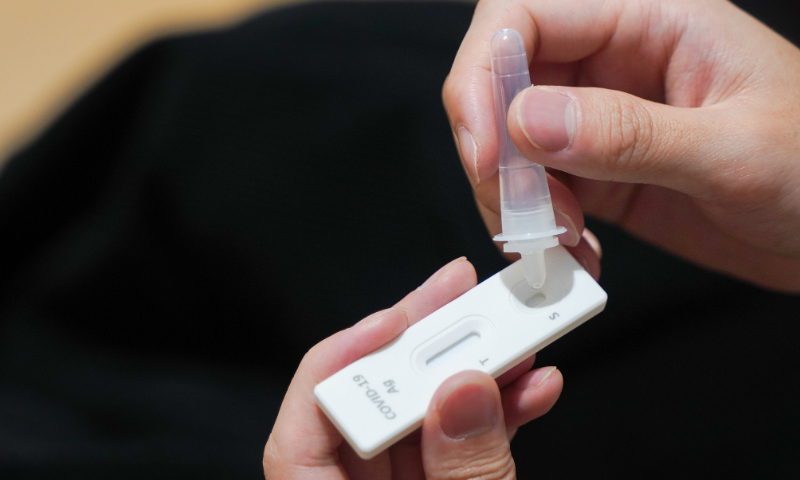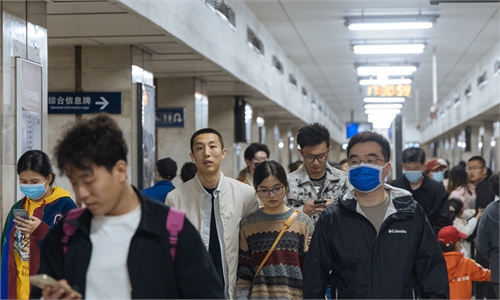
antigen detection kits Photo: VCG
With China entering a "wave-like" stage of COVID-19 infections, young people are the majority who get re-infected, and they have mild symptoms, said epidemiologists, dismissing severe risks of the recent surge. Several local governments rolled out new vaccines targeting Omicron variants to strengthen the population's immunity.
Recently, sporadic COVID-19 infections were reported in many cities across China, many of which are suffering from the second COVID-19 infection wave since last winter.
Li Tongzeng, chief physician in the respiratory and infectious diseases department at Beijing You'an Hospital, told the Global Times that the fever clinic recently received an increasing number of patients whose symptoms include fever, respiratory problems and coughing. A few patients suffered from vomiting and diarrhea.
Li said that most of those who are infected for a second time have milder symptoms than the first time, and their test result could turn negative within three or five days.
The number of COVID-19 infections in China has increased since late April and entered a low-level and wave-like stage from mid-May with most cases showing only mild symptoms, experts from the Chinese Center for Disease Control and Prevention (CDC) said on Sunday.
Most of those who got infected again are young people, with mild symptoms in the upper respiratory tract, Tong Zhaohui, a respiratory and critical illness expert and director of the Beijing Institute of Respiratory Medicine, told the Global Times. He said that antibodies left over from previous infections remain, so there's nothing to worry about.
Versions of the Omicron subvariants, including XBB, remain the dominant variants in China, Chen Cao, a researcher from the CDC, was quoted by media as saying on Monday. He noted that the XBB subvariants account for 95.2 percent of the variants they sampled from May 15 to 21.
There are also concerns about the impact of COVID-19 sequela. Tong said that if symptoms such as fatigue, sleep deprivation or others persist for three months, then they can be categorized as sequela. But the expert said only a handful of patients suffer from COVID-19 sequela at the moment, and those whose COVID-19 symptoms persist for longer than three months are usually people with higher risks.
Although they dismissed the severe risk of this infection wave, epidemiologists again stressed the importance of vaccinating high-risk groups, such as old people and people with underlying diseases.
According to Sinocelltech, a Chinese pharmaceutical enterprise, its newest vaccines targeting four types of COVID-19 subvariants including Omicron have been used in Beijing and other cities.
China's national authority on May 24 approved clinical trials on the efficacy of SA58, a new anti-COVID-19 monoclonal antibody nasal spray that was jointly developed by Chinese vaccine manufacturer SINOVAC and a research team led by Chinese scientists Cao Yunlong and Xie Xiaoliang, SINOVAC told the Global Times on Monday. It said that the antibodies can effectively neutralize Omicron subvariants such as XBB, XBB.1 and XBB.1.5.
Last week, some community hospitals in Shanghai introduced new vaccines covering the Omicron variants, including the protein subunit vaccine and the mRNA vaccine, which are available for people aged above 18.


